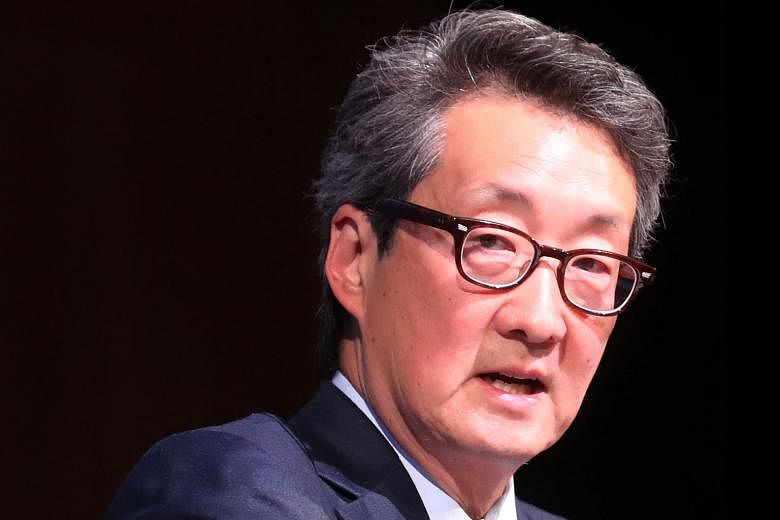WASHINGTON • Mr Victor Cha, a former White House official who was tipped to become the next US ambassador to South Korea, warned in an essay published yesterday against giving North Korea a "bloody nose" through a targeted military strike on the regime.
"Some may argue that US casualties and even a wider war on the Korean Peninsula are risks worth taking, given what is at stake," wrote Mr Cha in the commentary published in the Washington Post.
"But a strike (even a large one) would only delay North Korea's missile-building and nuclear programmes, which are buried in deep, unknown places impenetrable to bunker-busting bombs," wrote Mr Cha, a professor at Georgetown University and senior adviser at the Centre for Strategic and International Studies.
"A strike also would not stem the threat of proliferation but rather exacerbate it, turning what might be a North Korean money-making endeavour into a vengeful effort intended to equip other bad actors against us," he wrote.
Mr Cha questioned that if the US believed Mr Kim Jong Un was undeterrable without such a strike, how could the administration also believe that a strike would deter him from responding in kind?
"To be clear: The President would be putting at risk an American population the size of a medium-size US city - Pittsburgh, say, or Cincinnati - on the assumption that a crazy and undeterrable dictator will be rationally cowed by a demonstration of US kinetic power," he wrote.
Mr Cha suggested a "coercive strategy" to rein in Pyongyang, which involved enhanced and sustained US, regional and global pressure on Pyongyang to denuclearise.
"This strategy is likely to deliver the same potential benefits as a limited strike, along with other advantages, without the self-destructive costs," he said.
Mr Cha said the first element of the strategy would be to strengthen the coalition of UN member states in the campaign for sanctions against North Korea. Secondly, he argued for the US to "significantly up-gun" its alliances with integrated missile defences, intelligence-sharing and anti-submarine warfare and strike capabilities.
"Third, the United States must build a maritime coalition around North Korea involving rings of South Korean, Japanese and broader US assets to intercept any nuclear missiles or technologies leaving the country. China and Russia should be prepared to face the consequences if they allow North Korean proliferation across their borders," wrote Mr Cha.
Lastly, he said, the US must continue to prepare for military action.
"In the land of lousy options, no strategy is perfect, but some are better than others. This strategy gets us out of crisis-management mode. It constitutes decisive action, not previously attempted, by President Donald Trump. And it demonstrates resolve to other bad actors that threats to the United States will be countered," he argued.
Mr Cha, a former director for Asian affairs on the White House National Security Council during the Bush administration, had been expected to be nominated as South Korea ambassador for months.
However, he was reportedly dropped over his disagreement with the administration's "bloody nose" strategy.
WASHINGTON POST

